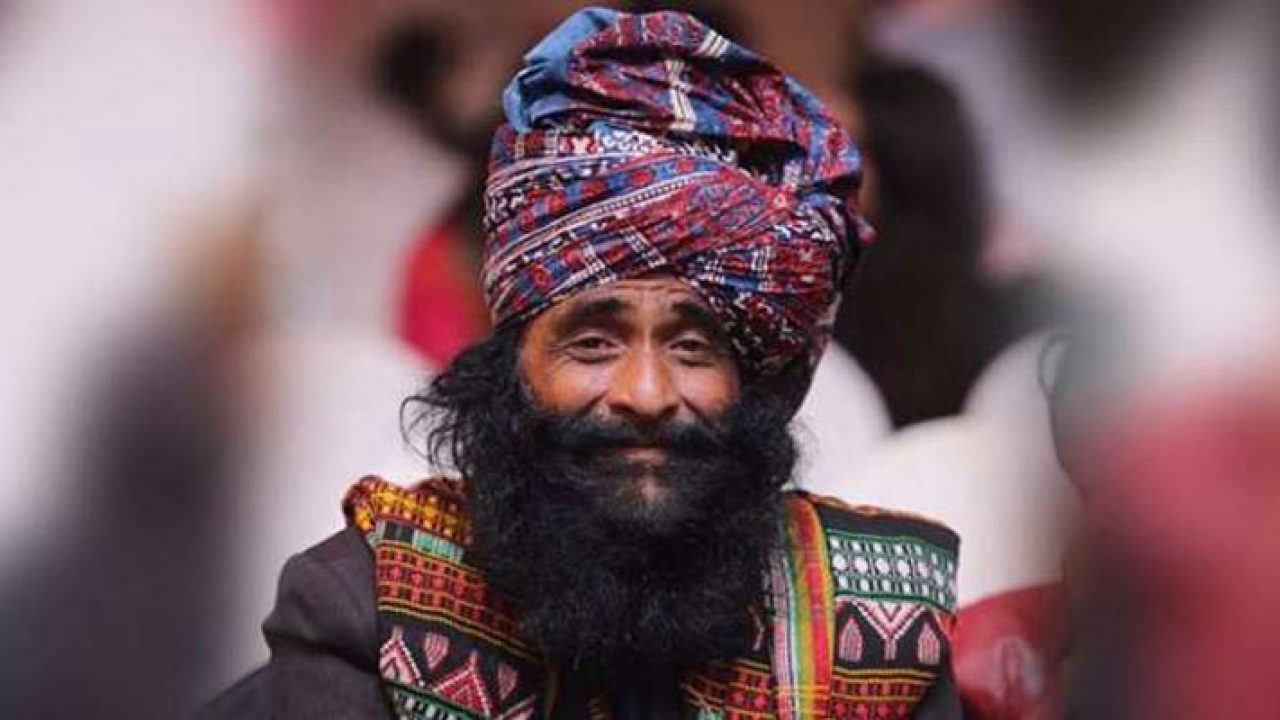By: Azeem Hakro
On August 14th, I remember Allan Faqeer and his beautiful singing of the national anthem. He would have made this day more special if he were here with us. I feel like I am joining him in his song, especially when he says, “Intay baray jeevan sagar mein tu nay Pakistan diya, oh Allah, oh Allah” (So great, in the sea of life, You gave us Pakistan, oh Allah, oh Allah).
Allan Faqeer was a folk singer from Pakistan who sang from his heart and soul. His music made people happy and spiritual at the same time. His songs had a magic that inspired and moved those who listened to them. Allan Faqeer had a rare talent that he shared with joy and passion. His performances were full of emotion and devotion that touched his audience deeply.
Allan Faqeer was born in 1932 in the village of Aamari in Jamshoro District, Sindh, Pakistan. Tragedy struck early in his life as his mother passed away soon after his birth. He spent his formative years in Manjhand, a town located between Sehwan and Hyderabad in Sindh. He belonged to the Mangrasi tribe, where a tradition of singing and drumming at weddings was prevalent. His family’s association with this tradition had a significant influence on Allan’s musical journey.
Allan had an amazing ability to remember things well, and he had a strong love for traditional music, even though he couldn’t read or write. He was deeply moved by a special kind of music called ‘Latifi Raag,’ and he enjoyed listening to it every night. With the encouragement of people like Faqir Zawar Qurban Ali Lanjwani and Moolchand Maharaj, Allan started singing the poetry of Shah Abdul Latif Bhittai at a place called a shrine. This was the start of his incredible journey as a singer. Despite his challenges with reading and writing, Allan’s connection to music and his dedication to sharing the beautiful poetry of Shah Abdul Latif Bhittai helped him become a renowned folk singer, touching the hearts of many with his heartfelt performances.
Allan spent a long time, twenty years, singing at the shrine. Later, he met Abdul Karim Baloch. He helped Allan get a chance to sing on the Hyderabad Radio and TV. With Baloch’s support, Allan worked hard to say the words of Bhitai’s poetry correctly. This made him even better as a singer. People started to think of him as a legendary performer because of his great singing. Baloch’s guidance and Allan’s determination together made his performances truly special.
Allan Faqeer did really well in music, and he got prizes for it. He got the President’s Pride of Performance award in 1980. In 1984, he got the Bukhari Award. Then, in 1987, he got the Shahbaz Award. He also got the Shah Latif Award in 1992 and the Kandhkot Award in 1993. All these prizes were because of his hard work and love for music. People liked his songs a lot, and these prizes showed how much they appreciated him.
Allan Faqeer made songs that many people really liked. One of his famous songs was with another singer named Muhammad Ali Shehki. They sang together in a duet called “Allah Allah Kar Bhayya, Humma Humma.” Another song he sang was about Pakistan and how it’s great. This song was called “Itne bare jeewan saagar mein tu nay Pakistan diya, O’ Allah, O’ Allah.” A famous poet named Jamiluddin Aali wrote the words for this song, and Niaz Ahmed made the music. Lots of people loved listening to these songs because they were so nice and meaningful.
Allan Faqeer left us on July 4, 2000. He passed away at Liaquat National Hospital. He had a wife, three sons, and two daughters. Although he’s no longer with us, his beautiful music and his dedication to Sufi traditions remain alive. People still listen to his songs and remember him. His music carries on his legacy, and he played a big role in keeping Sufi traditions strong in Pakistani culture. Even though he’s not here, his impact is felt through the melodies he created and the love he had for his country’s rich heritage. Allan Faqeer will always be remembered for his contribution to music and his role in preserving an important part of Pakistan’s cultural identity.











